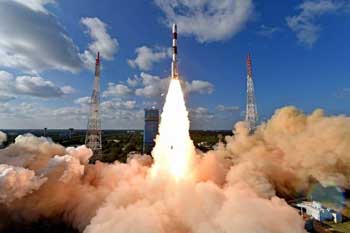INVC NEWS
San Jose, California,
The Prime Minister met Mr. Tim Cook, the CEO of Apple Inc., who mentioned that India has a special place for the company, as Steve Jobs, the co-founder of Apple Inc., went to India for inspiration. Discussions also focused on how Apple Inc. could be a partner in the Digital India initiative.
The Prime Minister met Mr. Satya Nadella (Microsoft), Mr. Sundar Pichai (Google), Mr. Shantanu Narayen (Adobe), Mr. Paul Jacobs (Qualcomm), and Mr. John Chambers (CISCO), who later joined him on stage for the Digital India Dinner.
The Prime Minister, in his address at this event, outlined his vision for Digital India.
During his address, he said: “… in this digital age, we have an opportunity to transform lives of people in ways that was hard to imagine just a couple of decades ago. This is what sets us apart from the century that we have just left behind. There may be still some who see the digital economy as the tool of the rich, educated and the privileged. But, ask the taxi driver or the corner vendor in India what he has gained from his cell phone, and the debate gets settled. I see technology as a means to empower and as a tool that bridges the distance between hope and opportunity. Social media is reducing social barriers. It connects people on the strength of human values, not identities. Today, technology is advancing citizen empowerment and democracy that once drew their strength from Constitutions. Technology is forcing governments to deal with massive volume of data and generate responses, not in 24 hours but in 24 minutes. When you think of the exponential speed and scale of expansion of social media or a service, you have to believe that it is equally possible to rapidly transform the lives of those who have long stood on the margins of hope. So, friends out of this conviction was born the vision of Digital India. It is an enterprise for India’s transformation on a scale that is, perhaps, unmatched in human history. Not just to touch the lives of the weakest, farthest and the poorest citizen of India, but change the way our nation will live and work.”
Arrival in San Jose
The Prime Minister later arrived in San Jose, California, to a vociferous and enthusiastic reception by the Indian American community. He met various members of the Indian community.
Visit to Tesla Motors
The Prime Minister visited Tesla Motors, where he was received by the CEO, Mr. Elon Musk, who explained various innovations done by the company, to the Prime Minister. The Prime Minister visited the factory floor. Renewable energy, Tesla’s battery technology, and innovations in energy storage figured in the discussions between the Prime Minister and Mr. Elon Musk. The Prime Minister also met various employees of Indian origin who work at Tesla.
G-4 Summit
The Prime Minister, Shri Narendra Modi, today (September 26, 2015) attended the G-4 Summit in New York City. President of Brazil Ms. Dilma Rousseff, Chancellor of Germany Ms. Angela Merkel and Prime Minister of Japan Mr. Shinzo Abe were also present.
In his opening remarks at the meeting, the Prime Minister said: “We live in a digital age. The global economy is changed, with new engines of growth, more widely dispersed economic power and widening wealth gap. Trends in demography, urbanization and migrations are posing new challenges. Climate change and terrorism are new concerns. Cyber and Space are entirely new frontiers of opportunities and challenges. Yet, our institutions, approaches, and often mindsets, reflect the wisdom of the century we have left behind, not the century we live in. This is especially true of the United Nations Security Council. The reform of the Security Council within a fixed time frame has become an urgent and important task.”
The Joint Statement issued at the end of the meeting stated: “The G-4 leaders stressed that a more representative, legitimate and effective Security Council is needed more than ever to address the global conflicts and crises, which had spiralled in recent years. They shared the view that this can be achieved by reflecting the realities of the international community in the 21st century, where more Member States have the capacity and willingness to take on major responsibilities with regard to maintenance of international peace and security.”













